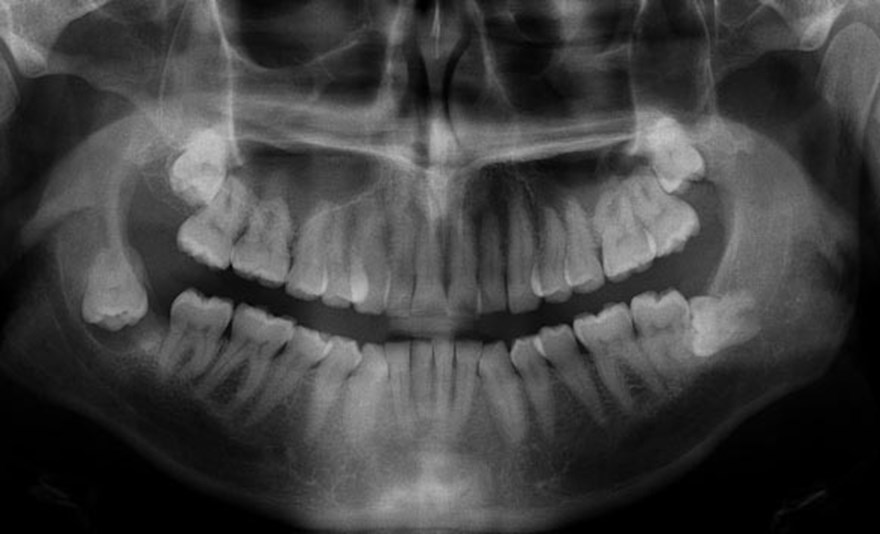 21 September 2022
21 September 2022
Wisdom Teeth – Not so Wise
Whether your wisdom teeth have arrived with little fanfare and are happily coexisting with the rest of your pearly whites, or your wisdom teeth are jumping up and down painfully demanding some attention it’s important to wise up on some wisdom teeth facts and help avoid future wisdom teeth infections and complications.
Wisdom teeth are also known as third molar teeth and are ordinarily the last adult teeth to erupt at the back of the mouth. They usually appear between the ages of 17 and 21 (Australian Dental Association), when we are ‘older and wiser’ hence their more common name ‘wisdom teeth’.
For some, wisdom teeth can be a problem before they even arrive. Often our jaws are too small for all 32 adult teeth to fit in alignment, resulting in a lack of space for wisdom teeth to come through properly, or as intended.
When a wisdom tooth tries to come through when there is not enough room it can get stuck against the tooth in front of it and may be only able to partially come through the gum. When a wisdom tooth only partially erupts it is especially susceptible to infection (pericoronitis) and decay as it becomes difficult to clean around and often traps food particles and bacteria underneath the edge of the gum.
When a wisdom tooth is described as being ‘impacted’ it means the tooth has been unable to erupt into the mouth. This is usually the result of there not being enough space for the tooth to erupt, resulting in the tooth getting stuck by either the tooth in front of it, or the overlying bone. When this happens, the wisdom tooth is usually positioned at an angle, rather than vertically.
There are four types of impaction:
- Mesial Impaction – the tooth is tipped toward the front of the mouth at an angle. This can result in a forward pressure on the teeth in front of the wisdom teeth.
- Vertical Impaction – when the tooth has fairly normal orientation but hasn’t fully erupted through the gum.
- Distoangular Impaction – the tooth is angled towards the back of the mouth and unable to erupt.
- Horizontal Impaction – when the tooth is lying sideways in the mouth at a 90 degree angle to where it should be.
Impacted wisdom teeth do not always cause concern, and may not produce any symptoms or pain, however, having your wisdom teeth assessed is important in preventing future complications such as infections and gum disease. Wisdom teeth can also be more difficult to remove as we age, as the bone becomes tougher.
For others, impacted wisdom teeth do cause problems, resulting in symptoms such as redness and swelling around the tooth, jaw pain, and headaches. In these situations removal of the wisdom teeth may be required to eliminate the symptoms.
Wisdom teeth removal is not always necessary; however in the following circumstances your dentist may recommend removal:
- When it is clear there is not enough room for the wisdom tooth/teeth to come through with the correct alignment, or the teeth erupt in a location making it difficult to clean
- If a wisdom tooth has only partially erupted and is either decayed or causing repeat episodes of pericoronitis
- If the wisdom tooth is painful
- If the removal of the wisdom teeth forms part of an orthodontic treatment plan recommended by your orthodontist.
Wisdom teeth can be hard to clean being at the very back of the mouth and in a hard to reach place. This inaccessibility not only makes it difficult to look after your wisdom teeth, but also means they may have less exposure to fluoride which can help protect against decay. Such situations can also increase the risk of decay and damage to the adjacent molar, with food trapping around the hard to clean wisdom tooth.
Brushing teeth after eating, daily flossing, and rinsing with a fluoridated mouthwash where recommended by your dentist will help reduce the chance of decay. Regular dental checkups will allow careful monitoring of your wisdom teeth as they erupt and can help protect wisdom teeth from future problems including gum disease.
Do you need wisdom teeth advice? Then you can book an appointment online in under 1 minute with one of our experienced dentists at a location near you.





